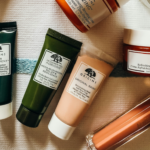Income inequality isn’t exactly a new issue in the United States, but the pandemic has done nothing but exacerbate it – and people are noticing. While most Americans share concern over income inequality, severe concern skyrocketed in 2020 amid the worst economic crisis since the Great Depression.
Americans whose jobs have been impacted by COVID-19 are even more concerned about income inequality now. In fact, this divide is even more exaggerated among lower-wage workers – who were more likely to have lost their jobs during the pandemic.
Concern about inequality has been quickly rising, and further reporting from CivicScience found that more than one-quarter of U.S. adults say their personal financial situation worsened over the course of the year.
For starters, naturally, the wealthier you are, the more “better off” you consider yourself financially during the pandemic. Nearly 30% of Americans making more than $150K annually say they’re better off while almost half of those making less than $25K annually are worse off.
There are (early) signs that this is worsening too. Sixty percent of those who already say their financial situation is worse also show concern about their employment situation.
The education gap is present and widening here as well. Those with a high school diploma (or less) are 24% more likely to say their financial situation is worse because of the pandemic compared to those with at least some form of a college education. Having at least an undergraduate degree has paid off for most Americans – especially those with STEM and business backgrounds.
Impact on Essentials and Living Expenses
When asking Americans about how the pandemic has affected their daily lives, the numbers are stark. One-fifth of U.S. adults have struggled to afford food or essential items within the past six months, and 18% have missed a major bill payment to cover such basic expenses.
And reports of these struggles are greatest among Americans who say their financial situation has worsened over the course of the pandemic.
Despite vaccine rollouts, there isn’t a clear end to the spread of COVID-19. CivicScience will be keeping track of how the pandemic is contributing to concern over income inequality and its larger impact on consumer behavior and sentiment.








